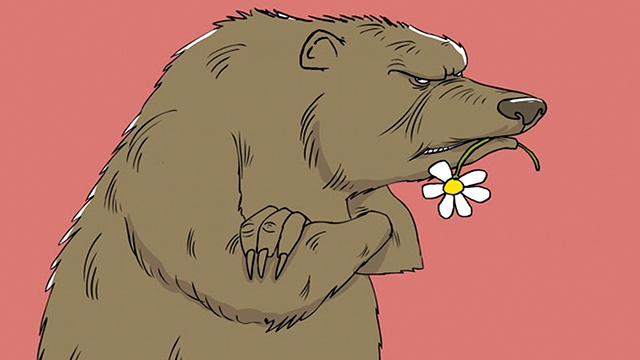Why Russia is Not as Weak as it Seems
OP-ED
In discussions of international affairs, it has become fashionable for Western observers to view Russia as a declining power, destined to succumb to the string of domestic and foreign problems that have beset it.
To begin with, there is a standard set of arguments to support this scenario. Russia’s declining population from the current 144 million to 120 mln by 2040-2050. economic stagnation (unlikely to reverse in the coming decade), problems with ethnic minorities, especially in the north Caucasus are just the tip of the iceberg.
On the foreign policy front, Russia’s backfired support for the Ukrainian separatists and Ukraine, Moldova, and Georgia’s signing of EU association agreements are cited as proof of Moscow’s weakening state. Similarly, while remaining the predominant military power in Central Asia, with bases in Tajikistan and Kyrgyzstan, Russia has been losing its economic preeminence in the region to China, which has also made military inroads by holding joint exercises with the Tajik and Kyrgyz armed forces and opening military bases in Tajikistan. No less importantly, Moscow is still feeling the impact of the Western sanctions, which are unlikely to be lifted anytime soon, while its attempts to foment far-right populism across Europe have thus far failed.
These internal and foreign policy setbacks have led Western observers to doubt whether Russians would be prepared to tolerate a Putin presidency till 2024. This year, Putin’s rule, which has already lasted a full 19 years, has become the longest since Stalin’s. An entire generation of young Russians has grown up knowing no other national leader.
Though interesting, these observations are Western-centric. They fail to consider the Russian mindset, political culture, and Russians’ rules of the game. While the above problems would probably suffice to bring down most European governments, a Russian leader's, whether a tsar, Soviet secretary-general or modern president, sway over the country has always remained strong.
Political sovereignty in the West emanates from below. In Russia, the government relies on coercive measures to control the vast country. Not only is this state of affairs not alien to most Russians, but as a result of the specific geographic, cultural and economic factors which have shaped modern Russia, its citizens expect their leaders to be guarantors of peace through various policies, even heavy-handed ones.
Hence the Kremlin’s lack of serious concern over the anti-government demonstrations which, in contrast to their over-dramatization by the Western media, reflect just a tiny fraction of the Russian population, as such not a real calculator of existing discontent across Russia.
Moreover, when we hear various poll results on a Russian leader's even sharply decreasing popularity, this rarely demonstrates the real circumstances inside the country. Various protests too, even when held in Russia's major cities, nevertheless represent no more than a small part of the population.
This also helps explain the failure of the Western sanctions introduced against Russia from 2014 onwards. True, the number of Russians impoverished by the sanctions has grown, but consider the following: while in Western democracies deterioration of life would likely lead to mass protests or even a change of government, nothing like this usually happens in Russia.
There is also the Russians' specific pride in their resilience in the face of a long string of Western aggressions, from the 1612 Polish siege of Moscow, to Swedish King Charles XII’s early 18th century incursions, to the Napoleonic and Nazi invasions: Russians view themselves (not wholly unjustifiably) as victims of Europe. This half-philosophical, half-historic worldview helps unite the population against both internal and external enemies.
Sacrifice, for ordinary Russians, is a distinct concept from what exists in the West. Throughout history, Russians (and their governments) have burned entire cities (including the spiritual capital of Moscow in 1812 when Napoleon invaded Russia); allowed cities to be besieged for months or even years (Leningrad in WWII), a striking comparison with what the French did in WWII when Germans closed on the city; and showed indifference to basic needs considered vital in western societies.
Respect and obedience to authority is also a distinct element of Russian society. The latter is neither overly democratic, fully European nor despotically Asian, but the Russians are always on a quest for a messianic formula to keep the state together. Christianity and pan-Slavism under the Romanovs, Communism in the Soviet era, a certain version of Eurasianism under Putin. Russia evolves, but explaining this evolvement via Western prisms rarely helps. Hopes in the West that a new generation of Russians, even those who have been protesting in the last couple of years, would eventually aspire to build a western-style democratic country is very much overblown. Much likelier is a generation of young Russian decision-makers which would remain anti-western, but more cold-blooded in their foreign policy moves.
This different point of view partially sheds light on why Western observers often misread Russia. For while, a Russian leader undoubtedly craves the widespread approval of his subjects: it is Russia’s strong state structures (e.g., the police, the security forces), together with messianic sentiments, that strengthens a Russian government to harness all political, human and economic resources for its various geopolitical aims.
By Emil Avdaliani
Image source: themoscowtimes.com












